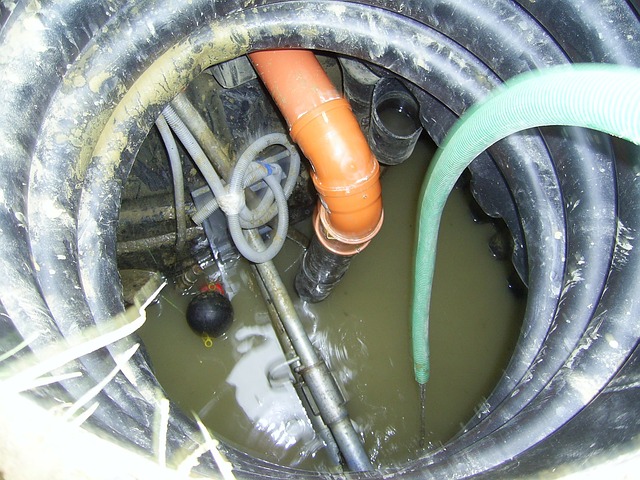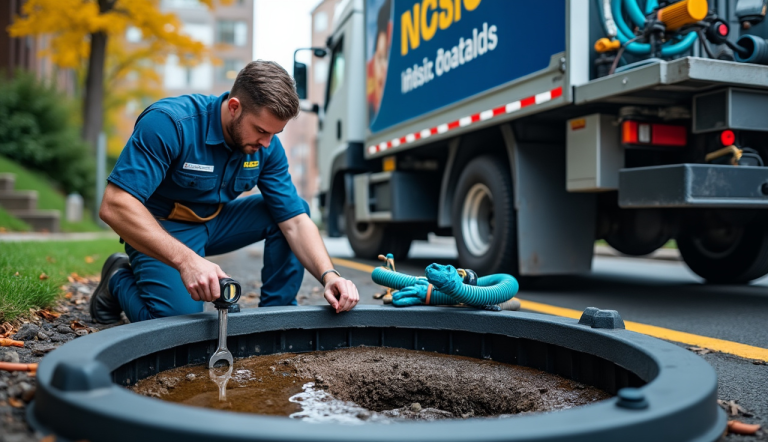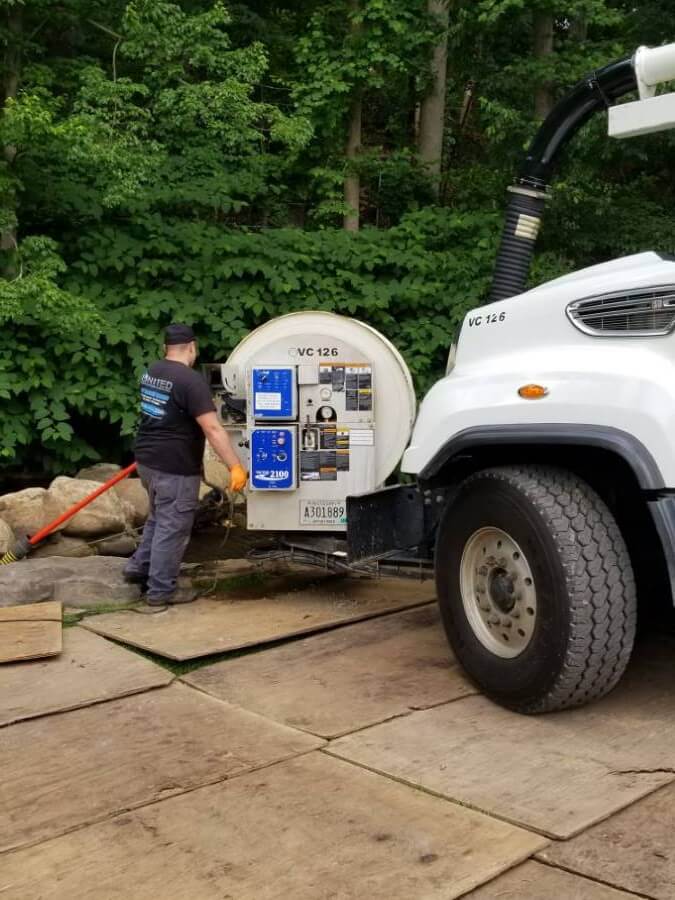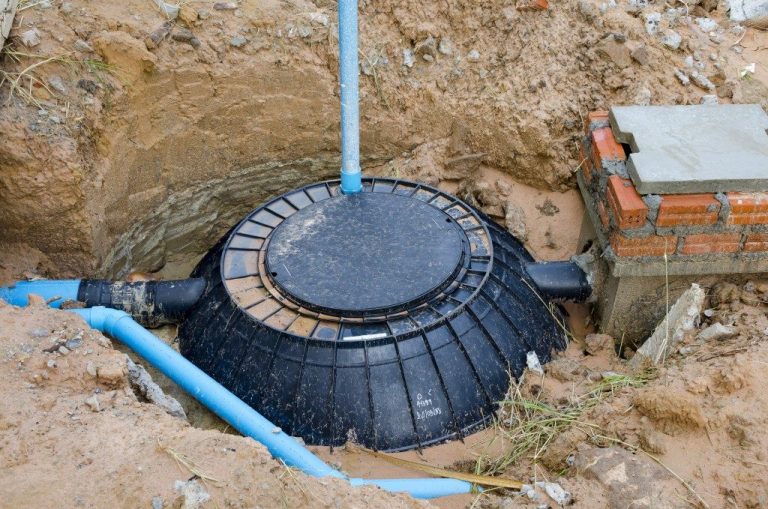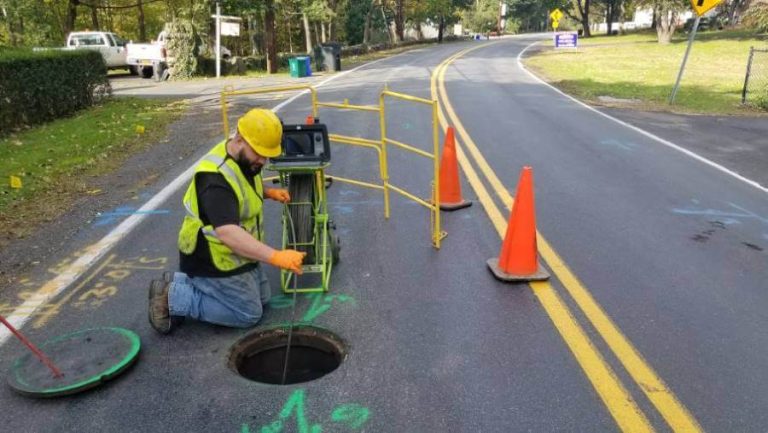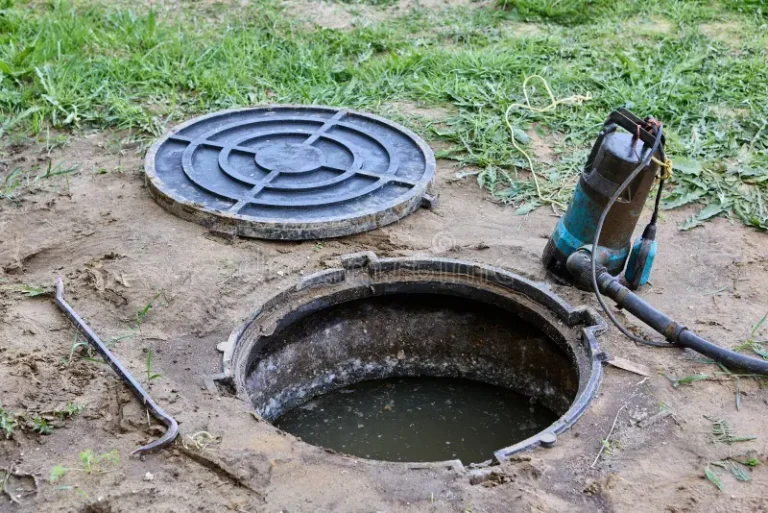Proper Waste Disposal Practices for Septic System Maintenance: Middletown’s Guide
Discover proper waste disposal practices for septic system maintenance. Protect your tank, drain field, and local water.
Proper waste disposal practices for septic system maintenance are essential for maintaining a healthy septic system. By following the right guidelines, homeowners in Middletown, New York can extend the life of their septic systems and avoid costly repairs. Let’s dive into the best practices for waste disposal that will keep your septic system running smoothly.
Table of Contents
Key Takeaways
- Avoid flushing non-biodegradable items like wipes, paper towels, and feminine hygiene products.
- Use water efficiently to prevent overloading the septic system
- Dispose of household chemicals and medications properly, not in the septic system
- Regular pumping and inspections are crucial for septic system health
- Be mindful of what goes down your drains, including food scraps and grease
- Use septic-safe cleaning products to protect the beneficial bacteria in your system
Understanding your Proper Waste Disposal Practices for Septic System Maintenance
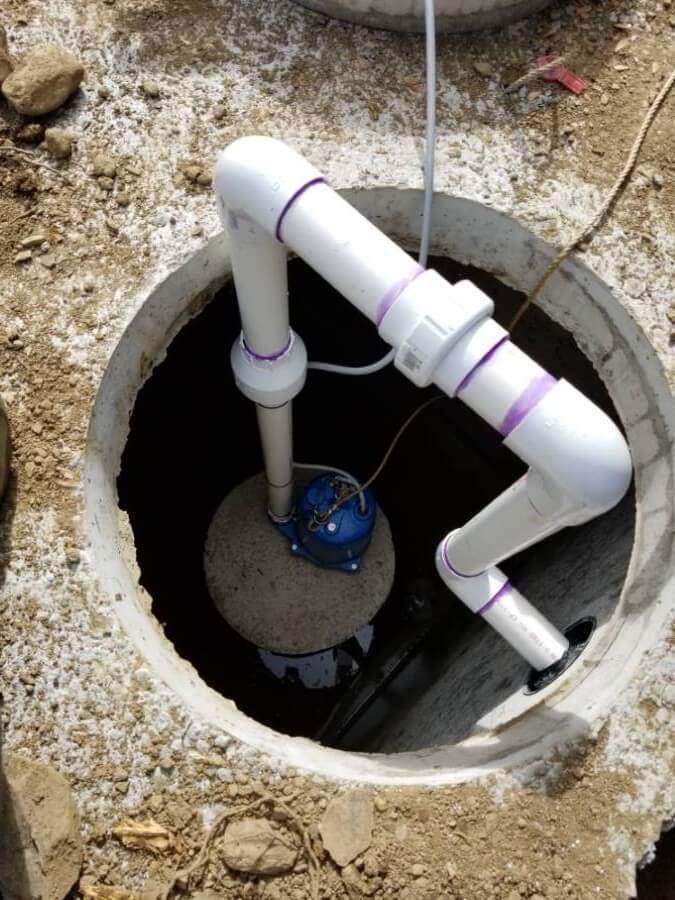
Before we get into the nitty-gritty of waste disposal practices, it’s important to understand how your septic system works and proper waste disposal practices for septic system maintenance. In Middletown, many homes rely on septic systems rather than municipal sewer lines. A typical septic system consists of a tank where solids settle and a drain field where liquid waste is filtered through the soil.
Your septic tank is like the unsung hero of your home’s plumbing. It quietly does its job day in and day out, processing all the wastewater from your toilets, sinks, and appliances. But just like any hero, it needs your help to keep fighting the good fight against clogs and backups.
The do’s of septic waste disposal
Let’s start with the positive habits that will keep your septic system happy. These are the practices that septic professionals in Orange County swear by for maintaining a healthy system.
Stick to toilet paper only.
When it comes to your toilet, less is more. Toilet paper is designed to break down quickly in water, making it safe for septic systems. Everything else should find another way to the trash can. This means no flushing of paper towels, facial tissues, or those “flushable” wipes that aren’t flushable after all.
Be water-wise
Using water efficiently isn’t just good for your wallet; it’s great for your septic system too. The less water you use, the less your system has to process. This means shorter showers, full loads of laundry, and fixing those leaky faucets pronto.
Choose septic-safe products
Not all cleaning products are created equal when it comes to septic systems. Look for products labeled as septic-safe. These are designed to clean your home without killing off the beneficial bacteria in your septic tank that break down waste.
Regular pumping is key.
Think of septic pumping as a spa day for your system. It’s a chance to clear out all the built-up gunk and start fresh. Most homes in Middletown should have their tanks pumped every 3-5 years, but your mileage may vary depending on household size and usage.
The don’ts of septic waste disposal
Now, let’s talk about the habits that can send your septic system to an early grave. These are the big no-nos that every Middletown homeowner should avoid.
Say no to chemical drain cleaners.
Those harsh chemical drain cleaners might seem like a quick fix for a clog, but they’re bad news for your septic system. They can kill off the good bacteria in your tank and corrode your pipes. Stick to natural methods or call a pro if you’ve got a stubborn clog.
Keep grease out of the kitchen sink.
Grease and septic systems mix about as well as oil and water. When you pour grease down the drain, it can solidify and cause blockages in your pipes or your drain field. Instead, let it cool and toss it in the trash.
Avoid flushing non-biodegradables
Your toilet is not a trash can. Flushing things like cigarette butts, dental floss, or cat litter can clog up your system faster than you can say “plumber’s bill.” Keep a trash can in the bathroom to avoid temptation.
Smart practices for household waste
Let’s move beyond the bathroom and kitchen to look at some overall smart practices for household waste that will benefit your septic system.
Composting food scraps
Instead of using your garbage disposal, consider starting a compost pile. Proper waste disposal practices for septic system maintenance. Food scraps can overload your septic system with organic matter. Plus, composting gives you free fertilizer for your garden – it’s a win-win!
Proper disposal of medications
Never flush old medications down the toilet. They can disrupt the bacterial balance in your septic tank. Middletown has drug take-back programs that provide a safe way to dispose of unused medications.
Handling household chemicals
Paints, solvents, and other household chemicals should never go down the drain. They can contaminate groundwater and kill beneficial bacteria in your septic system. Check with Orange County’s waste management department for proper disposal methods.
Water conservation techniques
Water conservation isn’t just good for the environment; it’s crucial for your septic system’s health. Here are some techniques to reduce water usage in your Middletown home.
Install low-flow fixtures
Swapping out old fixtures for low-flow models can significantly reduce your water usage. This means less strain on your septic system and lower water bills.
Fix leaks promptly
A dripping faucet might seem like no big deal, but those drops add up. Fix leaks as soon as you notice them to prevent unnecessary water from entering your septic system.
Spread out water usage.
Try to avoid doing all your water-intensive chores on the same day. Spread out laundry loads and dishwasher runs throughout the week to give your septic system time to process the water.
Landscaping considerations
Your yard plays a bigger role in your septic system’s health than you might think. Here’s how to landscape with your septic system in mind and proper waste disposal practices for septic system maintenance.
Keep heavy items off the drain field
Your drain field is not the place for parking cars or setting up that above-ground pool. Heavy items can compact the soil and damage the system.
Plant wisely
Choose shallow-rooted plants for the area over your drain field. Deep roots can interfere with the system’s operation.
Direct rainwater away
Make sure your gutters and landscaping direct rainwater away from your drain field. Excess water can overload the system and prevent proper treatment of wastewater.
Seasonal Septic Care
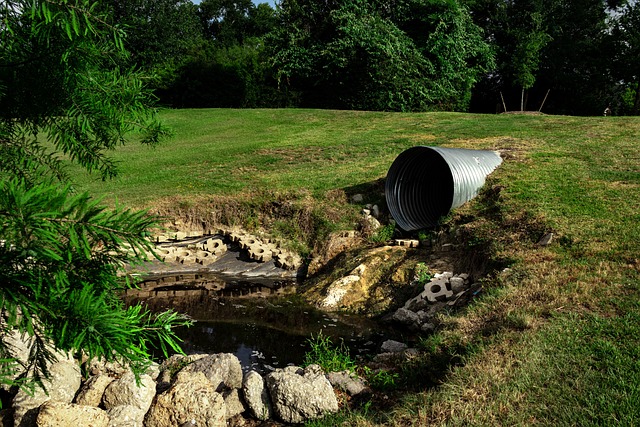
Septic care isn’t a set-it-and-forget-it kind of deal. It requires attention throughout the year, especially given Middletown’s varied climate.
Winter precautions
Middletown winters can be harsh, but your septic system still needs to function. Avoid compacting snow over the drain field, as this can prevent proper heating and potentially cause freezing.
Spring maintenance
As the ground thaws, it’s a good time to check for any damage from the winter. Look for soggy areas in your yard that might indicate a problem with your drain field.
Summer septic tips
Summer in Orange County means more outdoor activities and possibly more house guests. Be mindful of increased water usage and remind visitors about proper septic etiquette.
Fall Preparation
Before the cold sets in, consider having your tank inspected and pumped if needed. It’s also a good time to clear fallen leaves from the drainfield area.
Educating Household Members
A septic system is only as healthy as the habits of everyone in the household. Here’s how to get everyone on board with proper septic care.
Create a septic-friendly household guide.
Make a simple list of dos and don’ts for your family. Post it in bathrooms and near sinks as a reminder.
Teach kids about septic systems.
Make it a fun learning experience for kids. Explain how the system works and why it’s important to be careful about what goes down the drain.
Address guest etiquette
When you have visitors, give them a quick rundown of your septic system rules. A little education can prevent big problems.
Recognizing warning signs
Even with the best care, problems can arise. Knowing the warning signs can help you catch issues early.
Slow drains
If your sinks, showers, or toilets are draining slowly, it could be a sign of a problem in your septic system.
Unusual odors
Foul smells around your drains or in your yard near the septic tank or drain field are a red flag.
Lush vegetation
While it might look nice, unusually lush or green grass over your drain field can indicate a leak.
Professional Maintenance Schedule
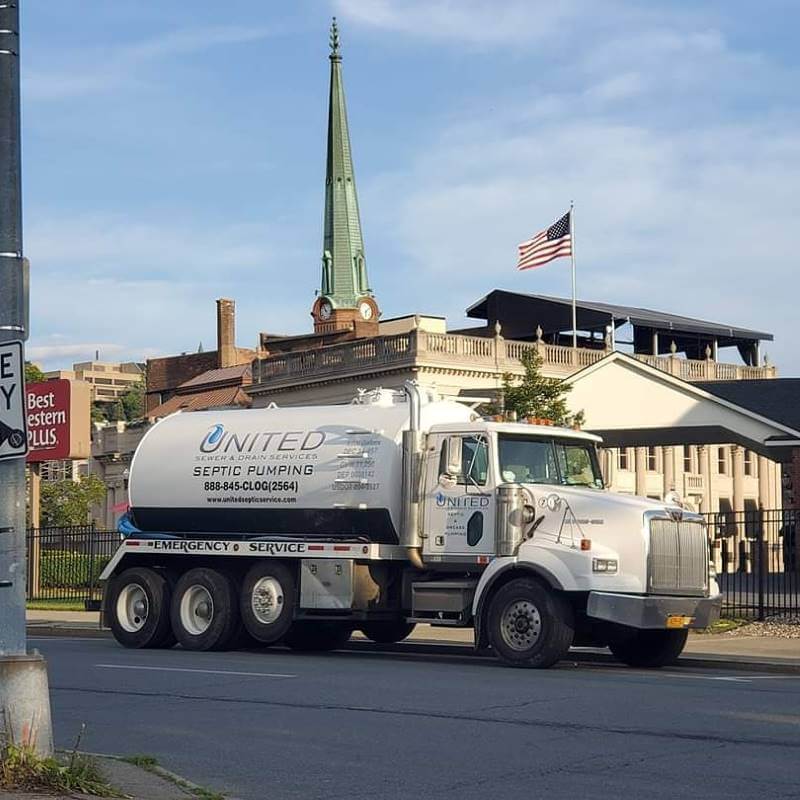
Regular professional proper waste disposal practices for septic system maintenance are key to a long-lasting septic system. Here’s what a typical maintenance schedule might look like for a Middletown home.
Annual inspections
Have a professional inspect your system yearly to catch any potential issues early. In proper waste disposal practices for septic system maintenance
Pumping frequency
Most homes need pumping every 3-5 years, but your inspector can give you a more precise schedule based on your usage.
System upgrades
As technology improves, consider upgrades that can enhance your system’s efficiency and longevity.
Local Regulations and Resources
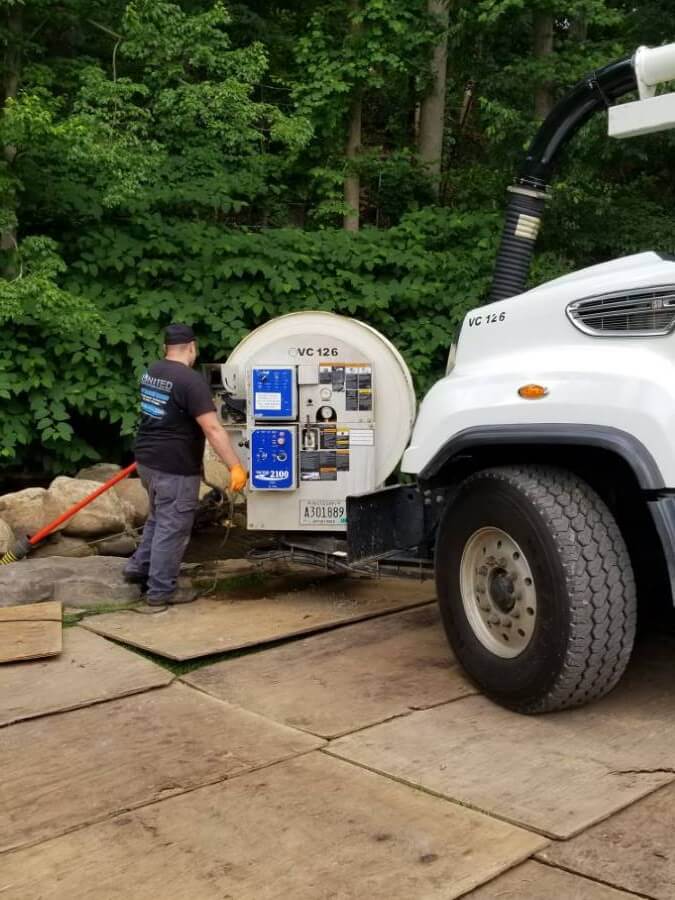
Middletown and Orange County have specific regulations regarding septic systems. Stay informed to ensure you comply.
Permit requirements
Any major work on your septic system may require a permit. Check with the local health department before starting any projects.
Local septic professionals
Build a relationship with a reputable septic service in the area. They can be a valuable resource for maintenance and emergencies.
Community education programs
Take advantage of any local workshops or education programs about septic care and proper waste disposal practices for septic system maintenance. The more you know, the better you can care for your system.
The impact of proper waste disposal
Your waste disposal habits don’t just affect your septic system; they have broader implications for the environment and community.
Protecting local water sources
Proper septic care helps protect Middletown’s groundwater and nearby water bodies from contamination.
Preserving property value
A well-maintained septic system can be a selling point if you ever decide to move.
Community health benefits
By maintaining your septic system, you’re contributing to the overall health and sanitation of your neighborhood.
| Waste Item | Proper Disposal Method | Impact on Septic System |
|---|---|---|
| Cooking Oil | Can clog pipes and drain field | Can clog pipes and overload the system |
| Medications | Drug take-back programs | Disrupt bacterial balance |
| Coffee Grounds | Compost or trash | Can tangle and clog the system |
| Paint | Local hazardous waste facility | Can contaminate groundwater |
| Dental Floss | Trash | Can tangle and clog system |
Proper waste disposal practices for septic system maintenance
| Water Usage Activity | Water-Saving Tip | Estimated Gallons Saved |
|---|---|---|
| Showering | Install low-flow showerhead | Up to 15 gallons per shower |
| Toilet Flushing | Use dual-flush toilets | 2-3 gallons per flush |
| Dishwashing | Run full loads only | 10-15 gallons per load |
| Laundry | Use high-efficiency washer | 15-30 gallons per load |
| Car Washing | Use a car wash facility | Up to 100 gallons per wash |
Here’s a quick checklist for maintaining your septic system:
- Pump your tank every 3-5 years
- Inspect the system annually
- Fix leaks and drips promptly
- Use water-efficient appliances
- Avoid harsh chemicals and non-biodegradables
- Keep records of all maintenance and repairs
- Protect your drain field from heavy objects and deep roots
- Educate family members and guests about proper use
Conclusion
proper waste disposal practices for septic system maintenance are the foundation of a healthy septic system. By following these guidelines, Middletown homeowners can ensure their systems run efficiently for years to come. Remember, what goes down your drains impacts not just your home, but the entire community and environment.
With a little care and attention, you can be a responsible septic system owner and contribute to the health of your local ecosystem. If you ever have doubts or concerns, don’t hesitate to reach out to local septic professionals. They’re there to help you keep your system in top shape and protect Orange County’s water resources for generations to come. For more information, you can visit our website or contact us.

